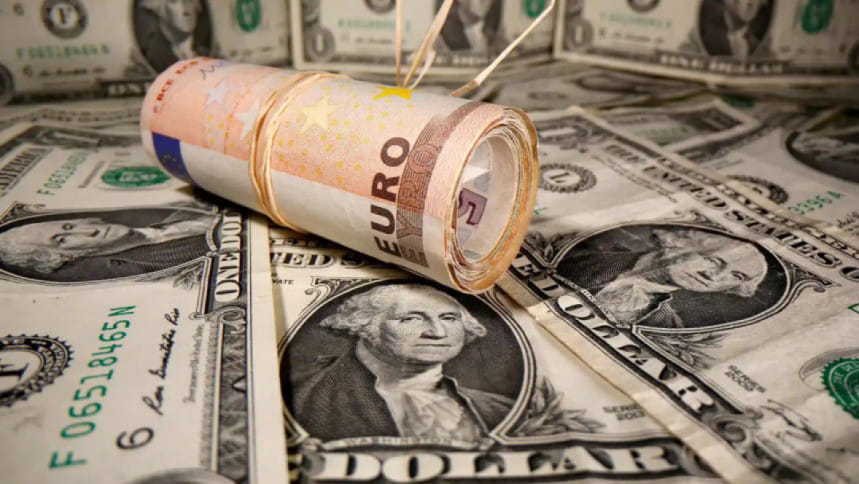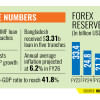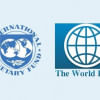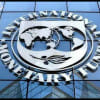'Reserve below $18b if BB liability considered'

Bangladesh's foreign currency reserves would be less than $18 billion if the central bank's liabilities are considered, according to Zahid Hussain, a former lead economist of the World Bank's Dhaka office.
The central bank is regularly publishing its gross foreign reserves in line with the formula of the International Monetary Fund (IMF) and it now stands at $21 billion.
"But if the central bank's liabilities are taken into account, then the net foreign currency reserve would be less than $18 billion," he said.
"And although the reserve situation has not reached an alarming level yet, it is now a matter of concern," Hussain added.
This is because Bangladesh Bank is selling more than $1 billion worth of US dollars each month.
Besides, the country's foreign currency expenditure against income has remained at a $1 billion deficit for the past 24 months.
"So, we are not at the satisfactory stage that we had been in the recent past," the economist said.
Hussain warned that if forex usage continues at the current rate, the country would run out of foreign currency at some point.
"Then, the exchange rate can't be contained at the current level and it will go out of control," he added.
Hussain made these comments while speaking to reporters after the annual conference of the International Business Forum of Bangladesh (IBFB) at Gulshan Club Limited in Dhaka.
The event was chaired by IBFB President Humayun Rashid.
Hussain expressed dissatisfaction over the prevalence of income inequality, saying economic growth will have its expected benefits if the situation continues.
Around 90 percent of the population made less than $10 per day in 2022 while it was less than $4 for the bottom 50 percent.
On the other hand, the top 1 percent earned nearly $110 a day that year.
"There is no possibility of becoming a middle-income country by 2031 if the income inequality continues at the current pace," Hussain said.
He also said Bangladesh needs average economic growth of nearly 8 percent to become a middle-income country by 2031 while more than 10 percent growth is needed to achieve high-income status by 2041.
Hussain suggested that Bangladesh needs to increase its productivity and income level of workers in order to tackle this situation.
Speaking as chief guest, Indian High Commissioner to Bangladesh Pranay K Verma said there is a big possibility in the future of bilateral trade through the Indian rupee, which started in July.
"The Indian rupee trading has just begun in response to the long-standing demand of local businesses of the two countries," he said, adding that visa processing should be made easier and faster for the business community.

 For all latest news, follow The Daily Star's Google News channel.
For all latest news, follow The Daily Star's Google News channel. 








Comments